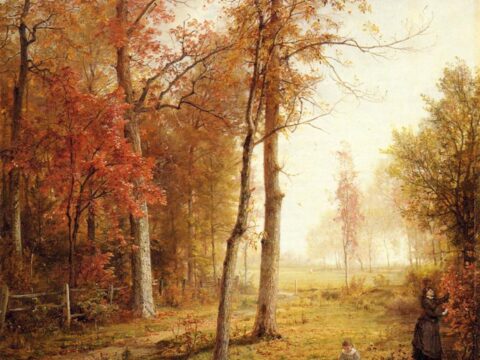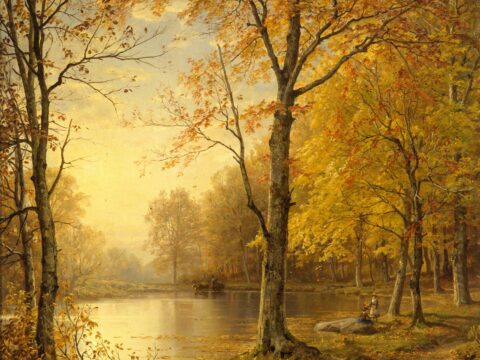
The prophets and apostles, the pious in general, who appear before us in the Old and New Testaments and later in the Church of Christ, did not philosophize about God in abstract notions, but they confessed what God was to them and what they had in common with their God in all the circumstances of life. God for them was not a cold concept, which they dissected mentally, but a living, personal power, a reality, infinitely more essential than the world around them, the one, eternal, adorable Being. They counted with Him in their lives, they dwelt in His tent, they walked before Him, they served in His courts, they worshipped in His sanctuary.
The authenticity and depth of their experience is expressed in the language they use to express what God is to them. They need not search for words, for their mouths overflow with what fills their hearts, and the world and nature provide them with images for their thoughts. To them God is a King, a Lord, a Hero, a Guide, a Shepherd, a Savior, a Redeemer, a Helper, a Physician, a Husbandman, a Father. All their salvation and bliss, truth and righteousness, life and mercy, strength and power, peace and rest are found in Him. He is to them a sun and a shield, a compass and a buckler, a light and a fire, a fountain and a spring, a rock and a shelter, a high room and a tower, a reward and a shadow, a city and a temple. All that the world contains, scattered and divided, is a parable of the unsearchable fullness of salvation, which is present in God for his people. That is why David in Psalm 16:2 (according to a better translation) addressed Jehovah in this way: You are my Lord, I have no higher good than You (You are my highest good), and Asaph in the 73rd Psalm sang: Whom have I in heaven but You, nor have I any pleasure in the earth. If my flesh and my heart fail, God is the rock of my heart and my portion for ever. Heaven with all its bliss and glory is empty and deadly without God to the pious; and if he lives in God’s fellowship, he has no desire for anything on earth, because the love of God far exceeds all other goods.
This is the experience of the children of God, made by them because God Himself gave Himself to them to enjoy in the Son of His love. Christ also says that eternal life for human beings, the whole of salvation, consists in the knowledge of the one and only true God and of Jesus Christ, whom He has sent.
Herman Bavinck. Magnalia Dei.



